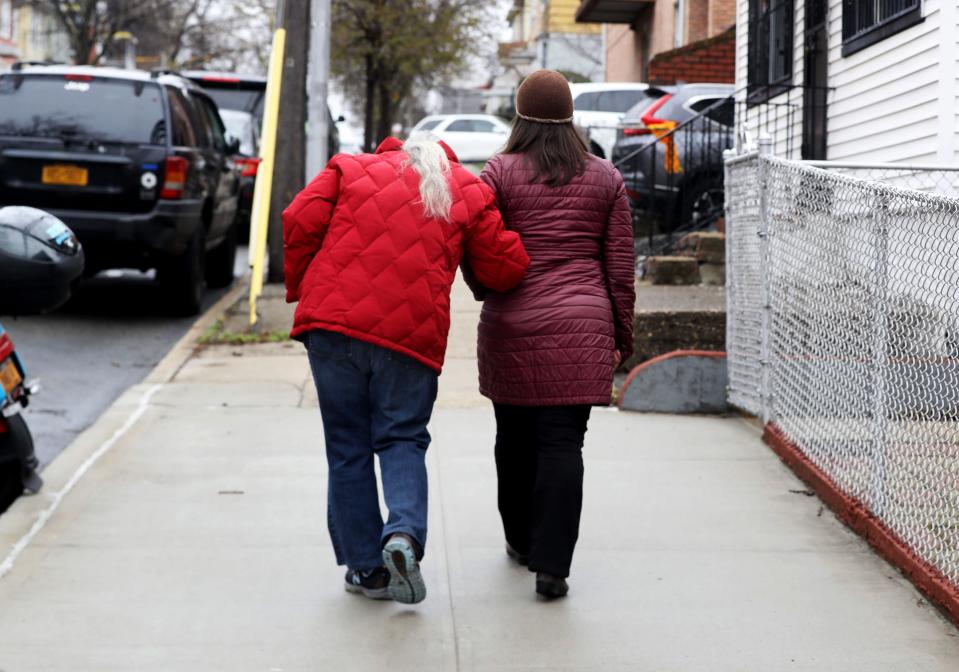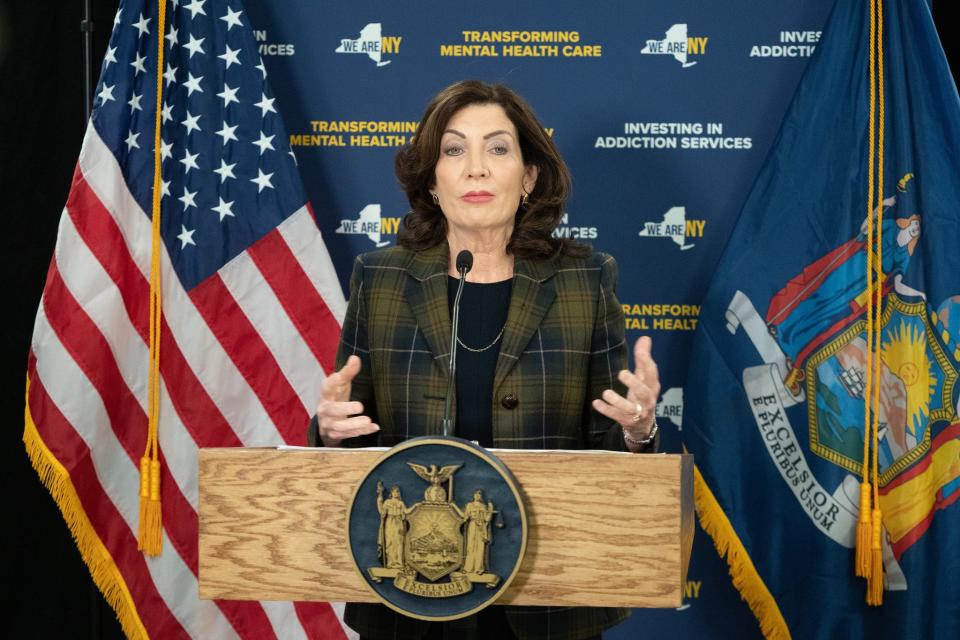NY spends billions of tax dollars on older residents. How you can shape state's aging plan
The state plan for addressing complex financial, social and health ills plaguing New York’s aging population is taking shape as Albany’s 2024 political session launches in earnest.
Currently, New York has the fourth-largest population of older adults nationally, with 3.8 million people over age 60.
The high stakes of the Master Plan for Aging, which will impact how billions of your tax dollars get spent each year, attracted more than 5,000 public comments in recent months. The flood of input prompted regulators to extend the survey effort another month.

Anyone interested in helping to shape the plan now has until Jan. 31 to complete the survey. For further details, visit the plan website via ny.gov or call NY Connects’ hotline at 1 (800) 342-9871.
An interim report on the effort is due Tuesday, with the final plan expected later this year.
To improve understanding of the issues involved, the USA TODAY Network interviewed one of the top state health officials leading the plan, Adam Herbst. That conversation and related information has been edited for clarity and follows below.
Why is NY’s Master Plan for Aging important?

"The big thing is it’s not just for people over a certain age. It’s intended to be relevant to and important at all ages and stages of life in New York," Herbst said.
"This is a unique opportunity to make the state a more vibrant place to age — no matter how old you are or how old your loved ones might be."
Caregiving: Home care crisis leaves New Yorkers without aides and families face burnout
What are New Yorkers concerned about?
"A lot of the challenges that we have all been familiar with in terms of demographics and families and caregiving and the state’s economy and long-term care and housing," Herbst continued.
"There are also issues with living alone, isolation, economic security. These things impact not just people over a certain age."
Nursing home shortage: Facilities send workers back to school to become LPNs
What does the aging population look like in NY?
An early report on the aging plan noted “if structural changes are not advanced, current demographic trends will increase the strain on benefits, supports, service systems and community infrastructure, as the average age of the state increases.”
Among the trends:
By 2030, more than 25% of New York will be over the age of 60 in 51 counties across the state, with approximately 5.5 million New Yorkers aged 60-plus.
Meanwhile, 70% of New Yorkers over the age of 65 are likely to need some form of long-term care.
Long-term care expenditures represent about 50% of the Medicaid budget and are the largest cost driver in the state budget.
Recent efforts to reverse those trends, however, have struggled as New York led the nation in population loss since 2020, dropping more than 631,000 residents, Census data show.
Health care costs: New York health insurance rates to jump double-digit percentage in 2024
What is NY aging plan's goal?
"This is supposed to be a living document and relevant for years to come," Herbst said. "It will be a set of recommendations and policies and budget initiatives that are real and relevant and achievable."
"Ultimately, the plan will result in some budget allocations and the governor is committed to ensuring investment in older adults.
And it’s just that; an investment. It benefits everyone when New Yorkers can stay in their community and careers as long as possible."
This article originally appeared on Rockland/Westchester Journal News: NY Master Plan for Aging: How you can weigh in on elderly care plan

